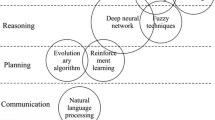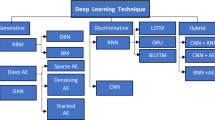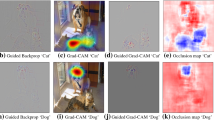Abstract
Explainable recommendations have drawn more attention from both academia and industry recently, because they can help users better understand recommendations (i.e., why some particular items are recommended), therefore improving the persuasiveness of the recommender system and users’ satisfaction. However, little work has been done to provide explanations from the angle of a user’s contextual situations (e.g., companion, season, and destination if the recommendation is a hotel). To fill this research gap, we propose a new context-aware recommendation algorithm based on supervised attention mechanism (CAESAR), which particularly matches latent features to explicit contextual features as mined from user-generated reviews for producing context-aware explanations. Experimental results on two large datasets in hotel and restaurant service domains demonstrate that our model improves recommendation performance against the state-of-the-art methods and furthermore is able to return feature-level explanations that can adapt to the target user’s current contexts.









Similar content being viewed by others
Notes
The results on Yelp-2019 dataset are similar, so we do not show here.
References
Abowd, G.D., Dey, A.K., Brown, P.J., Davies, N., Smith, M., & Steggles, P. (1999). Towards a better understanding of context and context-awareness. In International symposium on handheld and ubiquitous computing, pp. 304–307. Springer.
Adomavicius, G., & Tuzhilin, A. (2015). Context-aware recommender systems. In Shapira, B. (Ed.) Recommender systems handbook, 2 edn., pp. 191–226. Springer.
Baltrunas, L., Ludwig, B., & Ricci, F. (2011). Matrix factorization techniques for context aware recommendation. In Proceedings of the fifth ACM conference on Recommender systems, pp. 301–304.
Baral, R., Zhu, X., Iyengar, S.S., & Li, T. (2018). Reel: Review aware explanation of location recommendation. In Proceedings of the 26th conference on user modeling, adaptation and personalization, pp. 23–32. ACM.
Catherine, R., & Cohen, W. (2017). Transnets: Learning to transform for recommendation. In Proceedings of the Eleventh ACM Conference on Recommender Systems, pp. 288–296. ACM.
Chen, C., Zhang, M., Liu, Y., & Ma, S. (2018). Neural attentional rating regression with review-level explanations. In Proceedings of the 2018 world wide web conference on world wide web, pp. 1583–1592. International world wide web conferences steering committee.
Chen, G., & Chen, L. (2015). Augmenting service recommender systems by incorporating contextual opinions from user reviews. User Modeling and User-Adapted Interaction, 25(3), 295–329.
Chen, J., Zhang, H., He, X., Nie, L., Liu, W., & Chua, T.-S. (2017). Attentive collaborative filtering: Multimedia recommendation with item-and component-level attention. In Proceedings of the 40th international ACM SIGIR conference on research and development in information retrieval, pp. 335–344. ACM.
Chen, X., Zhang, Y., & Qin, Z. (2019). Dynamic explainable recommendation based on neural attentive models. In Thirty-third AAAI conference on artificial intelligence. AAAI Press.
Cho, K., Van Merriënboer, B., Gulcehre, C., Bahdanau, D., Bougares, F., Schwenk, H., & Bengio, Y. (2014). Learning phrase representations using rnn encoder-decoder for statistical machine translation. In Proceedings of the 2014 conference on empirical methods in natural language processing (EMNLP), pp. 1724–1734.
Costa, F., Ouyang, S., Dolog, P., & Lawlor, A. (2018). Automatic generation of natural language explanations. In Proceedings of the 23rd international conference on intelligent user interfaces companion, p 57. ACM.
Deng, Z.-H., Huang, L., Wang, C.-D., Lai, J.-H., & Yu, P.S. (2019). Deepcf: A unified framework of representation learning and matching function learning in recommender system. In Thirty-third AAAI conference on artificial intelligence. AAAI Press.
Gao, J., Wang, X., Wang, Y., & Xie, X. (2019). Explainable recommendation through attentive multi-view learning. In Thirty-third AAAI conference on artificial intelligence. AAAI Press.
He, X., Chen, T., Kan, M-Y, & Chen, X. (2015). Trirank: Review-aware explainable recommendation by modeling aspects. In Proceedings of the 24th ACM international on conference on information and knowledge management, pp. 1661–1670. ACM.
He, X., & Chua, T.-S. (2017). Neural factorization machines for sparse predictive analytics. In Proceedings of the 40th international ACM SIGIR conference on research and development in information retrieval, pp. 355–364. ACM.
He, X., Liao, L., Zhang, H., Nie, L., Hu, X., & Chua, T.-S. (2017). Neural collaborative filtering. In Proceedings of the 26th international conference on world wide web, pp. 173–182. International world wide web conferences steering committee.
Herlocker, J.L., Konstan, J.A., & Riedl, J. (2000). Explaining collaborative filtering recommendations. In Proceedings of the 2000 ACM conference on Computer supported cooperative work, pp. 241–250. ACM.
Hochreiter, S., & Schmidhuber, J. (1997). Long short-term memory. Neural computation, 9(8), 1735–1780.
Karatzoglou, A., Amatriain, X., Baltrunas, L., & Oliver, N. (2010). Multiverse recommendation: n-dimensional tensor factorization for context-aware collaborative filtering. In Proceedings of the fourth ACM conference on recommender systems, pp. 79–86. ACM.
Kim, D., Park, C., Oh, J., Lee, S., & Yu, H. (2016). Convolutional matrix factorization for document context-aware recommendation. In Proceedings of the 10th ACM conference on recommender systems, pp. 233–240. ACM.
Kim, Y-D, & Choi, S. (2007). Nonnegative tucker decomposition. In 2007 IEEE conference on computer vision and pattern recognition, pp. 1–8. IEEE.
Kingma, D.P., & Ba, J. (2015). Adam: A method for stochastic optimization. In International conference on learning representations (ICLR).
Levi, A., Mokryn, O., Diot, C., & Taft, N. (2012). Finding a needle in a haystack of reviews: cold start context-based hotel recommender system. In Proceedings of the sixth ACM conference on recommender systems, pp. 115–122. ACM.
Li, P., Wang, Z., Ren, Z., Bing, L., & Lam, W. (2017). Neural rating regression with abstractive tips generation for recommendation. In Proceedings of the 40th international ACM SIGIR conference on research and development in information retrieval, pp. 345–354. ACM.
Li, L., Dong, R., & Chen, L. (2019). Context-aware co-attention neural network for service recommendations. In Proceedings of ICDE’19 workshop on recommender systems with big data, pp. 201–208. IEEE.
Li, L., Chen, L., & Zhang, Y. (2020a). Towards controllable explanation generation for recommender systems via neural template. In Companion proceedings of the web conference 2020, pp. 198–202.
Li, L., Zhang, Y., & Chen, L. (2020b). Generate neural template explanations for recommendation. In Proceedings of the 29th ACM international conference on information and knowledge management, pp. 755–764. ACM.
Liu, Q., Wu, S., Wang, L., & et al. (2015). Cot: Contextual operating tensor for context-aware recommender systems. In Twenty-ninth AAAI conference on artificial intelligence. AAAI Press.
Lu, Y., Dong, R., & Smyth, B. (2018). Coevolutionary recommendation model: Mutual learning between ratings and reviews. In Proceedings of the 2018 world wide web conference on world wide web, pp. 773–782. International world wide web conferences steering committee.
Lu, Y., Dong, R., & Smyth, B. (2018). Why i like it: Multi-task learning for recommendation and explanation. In Proceedings of the eighth ACM conference on recommender systems. ACM.
Mei, L., Ren, P., Chen, Z., Nie, L., Ma, J., & Nie, J.-Y. (2018). An attentive interaction network for context-aware recommendations. In Proceedings of the 27th ACM international conference on information and knowledge management, pp. 157–166. ACM.
Mnih, A., & Salakhutdinov, R.R. (2008). Probabilistic matrix factorization. In Advances in neural information processing systems, pp. 1257–1264.
Rendle, S. (2010). Factorization machines. In 10th international conference on data mining (ICDM), pp. 995–1000. IEEE.
Sarwar, B., Karypis, G., Konstan, J., & Riedl, J. (2001). Item-based collaborative filtering recommendation algorithms. In Proceedings of the 10th international conference on world wide web, pp. 285–295. ACM.
Sato, M., Ahsan, B., Nagatani, K., Sonoda, T., Zhang, Q., & Ohkuma, T. (2018). Explaining recommendations using contexts. In 23rd international conference on intelligent user interfaces, pp. 659–664. ACM.
Seo, S., Huang, J., Yang, H., & Liu, Y. (2017). Interpretable convolutional neural networks with dual local and global attention for review rating prediction. In Proceedings of the eleventh ACM conference on recommender systems, pp. 297–305. ACM.
Tintarev, N., & Masthoff, J. (2015). Explaining recommendations: Design and evaluation. In Shapira, B. (Ed.) Recommender Systems Handbook, 2 edn., pp. 353–382. Springer.
Vig, J., Sen, S., & Riedl, J. (2009). Tagsplanations: explaining recommendations using tags. In Proceedings of the 14th international conference on intelligent user interfaces, pp. 47–56.
Wang, N., Wang, H., Jia, Y., & Yin, Y. (2018a). Explainable recommendation via multi-task learning in opinionated text data. In Proceedings of the 41st international ACM SIGIR conference on research & development in information retrieval, pp. 165–174. ACM.
Wang, X., He, X., Feng, F., Nie, L., & Chua, T.-S. (2018b). Tem: Tree-enhanced embedding model for explainable recommendation. In Proceedings of the 2018 world wide web conference on world wide web, pp. 1543–1552. International world wide web conferences steering committee.
Wang, X., Chen, Y., Yang, J., Wu, L., Wu, Z., & Xie, X. (2018c). A reinforcement learning framework for explainable recommendation. In 2018 IEEE international conference on data mining (ICDM), pp. 587–596. IEEE.
Wang, X., Wang, D., Xu, C., He, X., Cao, Y., & Chua, T.-S. (2019). Explainable reasoning over knowledge graphs for recommendation. In Thirty-third AAAI conference on artificial intelligence. AAAI Press.
Xiao, J., Ye, H., He, X., Zhang, H., Wu, F., & Chua, T.-S. (2017). Attentional factorization machines: Learning the weight of feature interactions via attention networks. In Proceedings of the twenty-sixth international joint conference on artificial intelligence.
Xin, X., Chen, B., He, X., Wang, D., Ding, Y., & Jose, J. (2019). Cfm: convolutional factorization machines for context-aware recommendation. In Proceedings of the 28th international joint conference on artificial intelligence, pp. 3926–3932. AAAI Press.
Zhang, Y., & Chen, X. (2020). Explainable recommendation: A survey and new perspectives. Foundations and Trends® in Information Retrieval, 14(1), 1–101.
Zhang, Y., Lai, G., Zhang, M., Zhang, Y., Liu, Y., & Ma, S. (2014). Explicit factor models for explainable recommendation based on phrase-level sentiment analysis. In Proceedings of the 37th international ACM SIGIR conference on research & development in information retrieval, pp. 83–92. ACM.
Zhang, Y., Zhang, H., Zhang, M., Liu, Y., & Ma, S. (2014). Do users rate or review? boost phrase-level sentiment labeling with review-level sentiment classification. In Proceedings of the 37th international ACM SIGIR conference on research & development in information retrieval, pp. 1027–1030. ACM.
Zhao, L., Song, K., Sun, C., Zhang, Q., Huang, X., & Liu, X. (2019). Review response generation in e-commerce platforms with external product information. In The world wide web conference, pp. 2425–2435. ACM.
Author information
Authors and Affiliations
Corresponding author
Additional information
Publisher’s note
Springer Nature remains neutral with regard to jurisdictional claims in published maps and institutional affiliations.
Rights and permissions
About this article
Cite this article
Li, L., Chen, L. & Dong, R. CAESAR: context-aware explanation based on supervised attention for service recommendations. J Intell Inf Syst 57, 147–170 (2021). https://doi.org/10.1007/s10844-020-00631-8
Received:
Revised:
Accepted:
Published:
Issue Date:
DOI: https://doi.org/10.1007/s10844-020-00631-8




